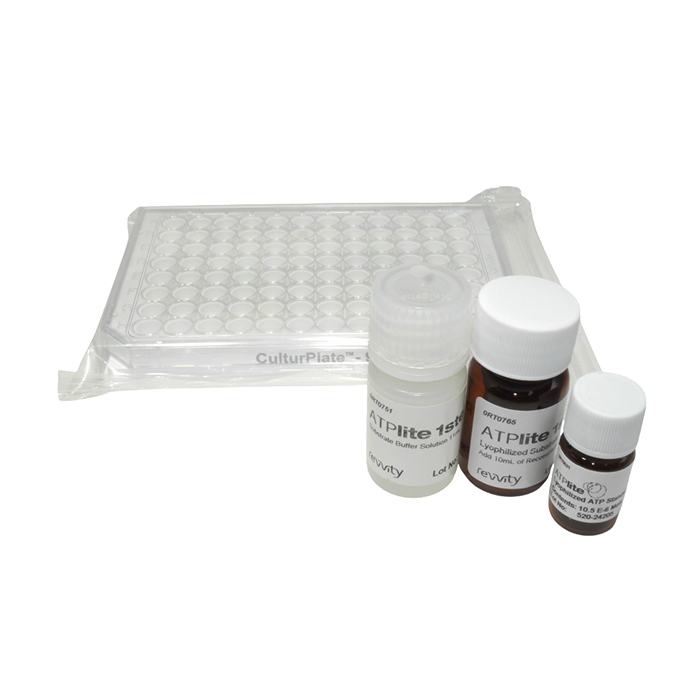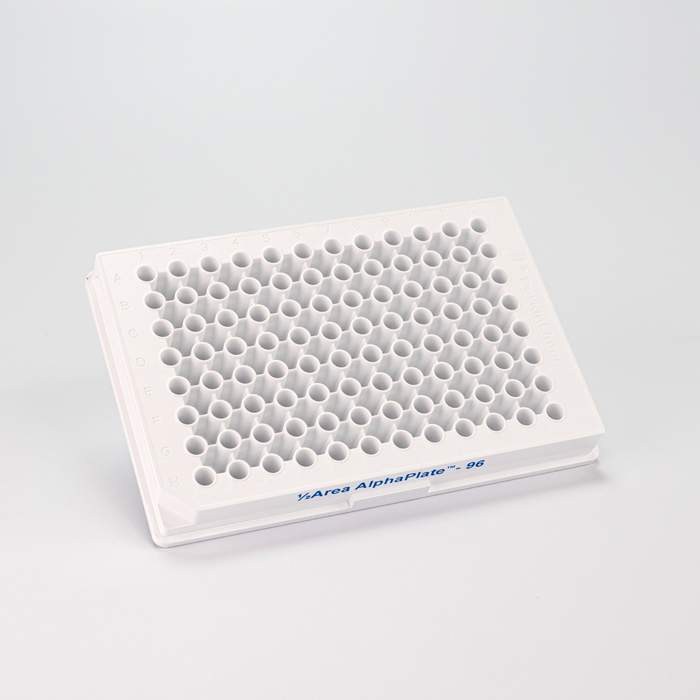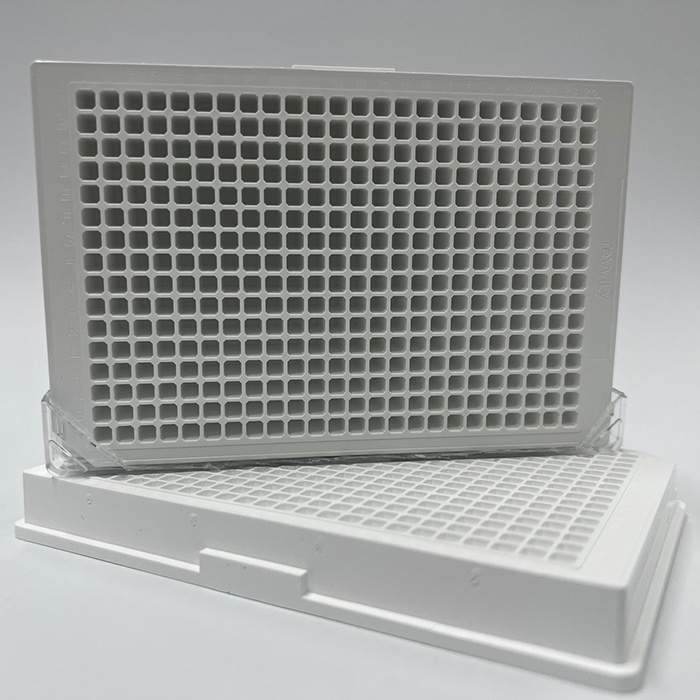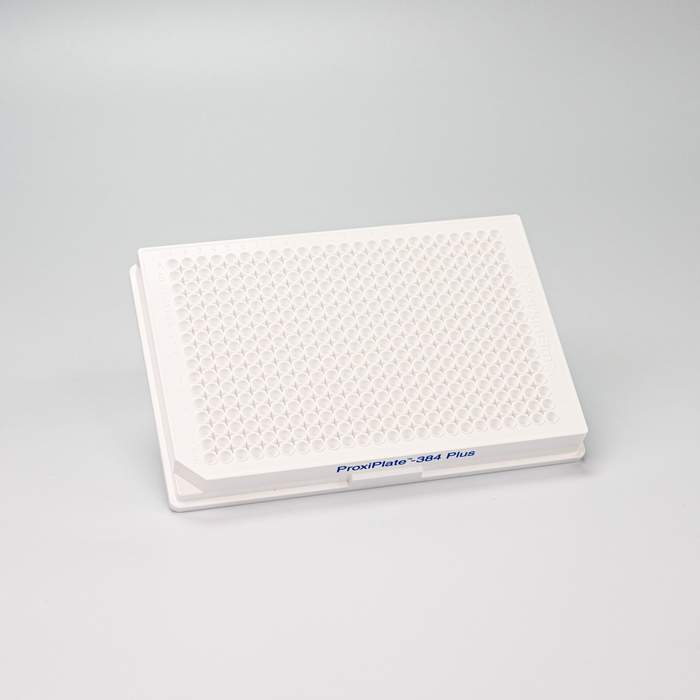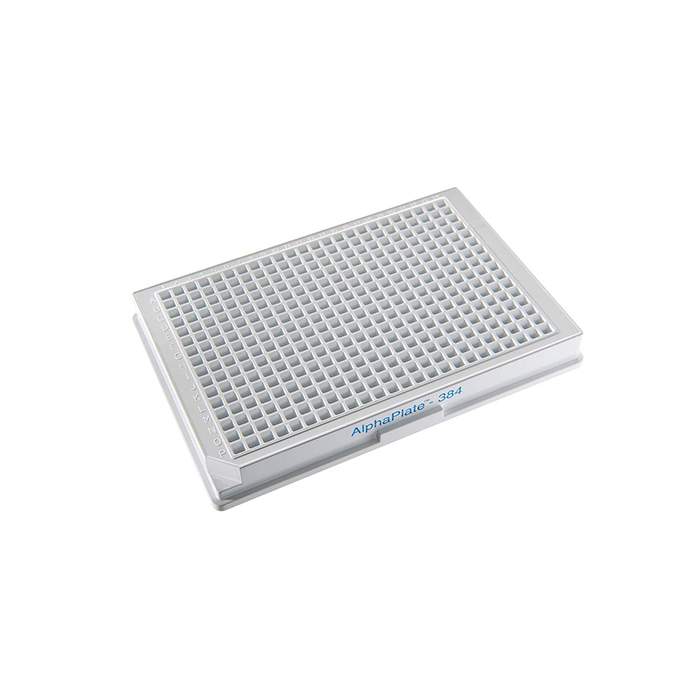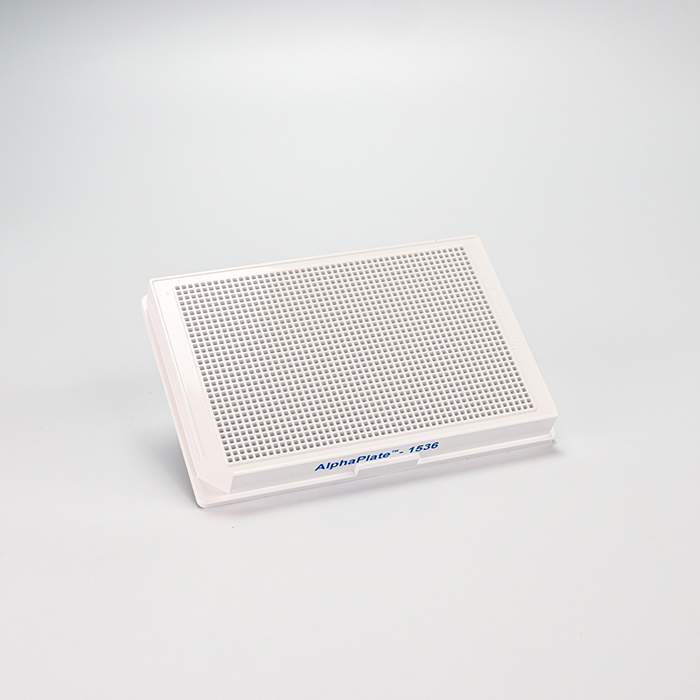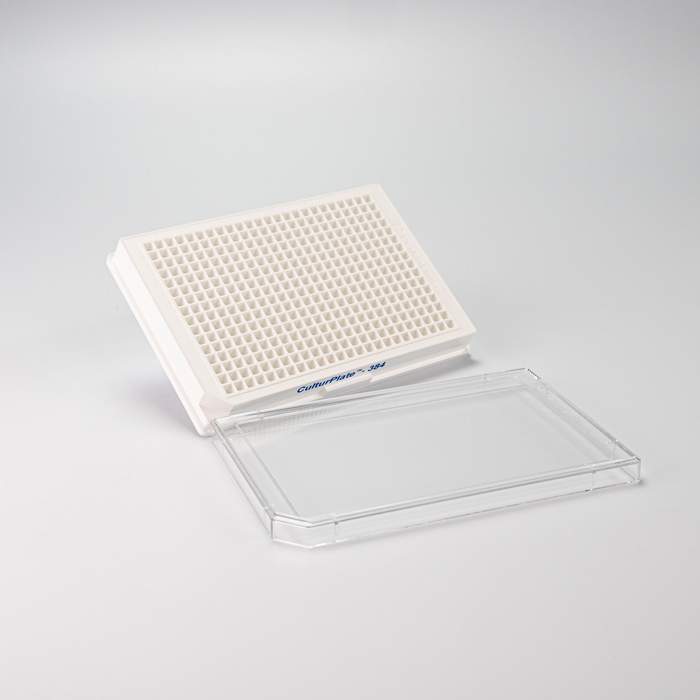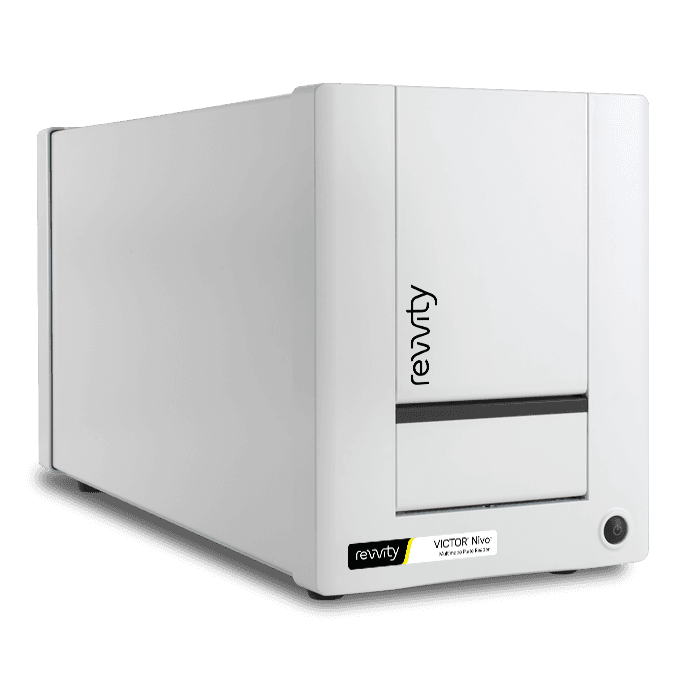

AlphaLISA Human IL-8 High Performance & Biotin Free Detection Kit, 500 Assay Points
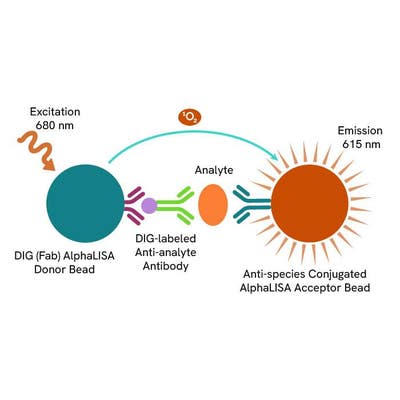

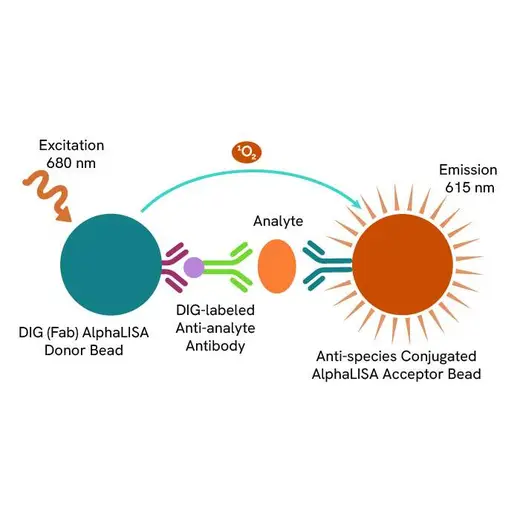


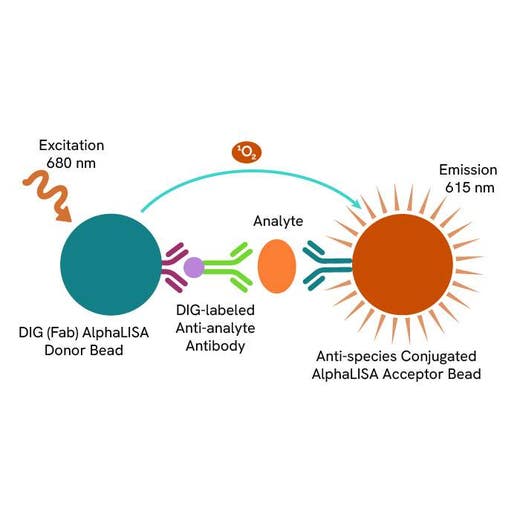


| Feature | Specification |
|---|---|
| Application | Protein Quantification |
| Dynamic Range | 0.66 - 10,000 pg/mL |
| Limit of Detection | 0.66 pg/mL |
| Limit of Quantification | 2.60 pg/mL |
| Sample Volume | 5 µL |









Supporting products you might need
You might also need
Don't forget your microplates
Product information
Overview
Interleukin 8 (IL-8 or CXCL8), a member of the ELR+ CXC chemokine family, is an 8.4 kDa polypeptide that forms homodimers in vivo. IL-8 is secreted by several types of cells, including fibroblasts, monocytes, macrophages, and endothelial cells, in response to inflammatory stimuli. It is a chemoattractant and activator for neutrophils, directing them from peripheral blood to the site of inflammation. It is also a potent angiogenic factor promoting endothelial and epithelial migration and proliferation in several cancers and is associated with metastasis. It signals through two specific G protein-coupled receptors, CXCR1 and CXCR2, sharing ~77% identity.
Formats
- Our 100 assay point kit allows you to run 100 wells in 96-well format, using a 100 µL reaction volume (10 µL of sample).
- Our 500 assay point kit allows you to run 500 wells in 96-well or 384-well format, using a 50 µL reaction volume (5 µL of sample).
- Our 5,000 assay point kit allows you to run 5,000 wells in 96-well or 384-well format, using a 50 µL reaction volume (5 µL of sample).
Features
- No-wash steps, no separation steps
- ELISA alternative technology
- Sensitive detection
- Broad sample compatibility
- Small sample volume
- Results in less than 3 hours
- Half the time of an ELISA assay
AlphaLISA technology allows the detection of molecules of interest in a no-wash, highly sensitive, quantitative assay. In an AlphaLISA assay, a biotinylated anti-analyte antibody binds to the Streptavidin-coated Donor beads while another anti-analyte antibody is conjugated to AlphaLISA Acceptor beads. In the presence of the analyte, the beads come into close proximity. The excitation of the Donor beads causes the release of singlet oxygen molecules that triggers a cascade of energy transfer in the Acceptor beads, resulting in a sharp peak of light emission at 615 nm.
How it works
Principle of the AlphaLISA biotin-free assay
The AlphaLISA Biotin-Free assay is based on an AlphaLISA sandwich immunoassay involving a digoxigenin anti-analyte antibody bound to anti-DIG AlphaLISA Donor beads and an anti-analyte antibody conjugated to AlphaLISA Acceptor beads. Both antibodies are directed against the analyte of interest. In the presence of the target, both antibodies bind to analyte and the beads come into proximity. The excitation of the Donor beads provokes the release of singlet oxygen molecules that triggers a cascade of energy transfer within the Acceptor beads, resulting in emission with λmax at 615 nm. The intensity of the signal is directly proportional to the concentration of analyte present in the sample.

Protocol of the AlphaLISA biotin-free assay
The AlphaLISA Biotin-Free assay can be run in a 96- or 384-well detection plate (50 µL final). As described here, samples or standards are dispensed directly into the assay plate for the detection of the analyte of interest by AlphaLISA reagents. No washing steps are needed. The protocol can be further miniaturized or upscaled by simply resizing each addition volume proportionally.
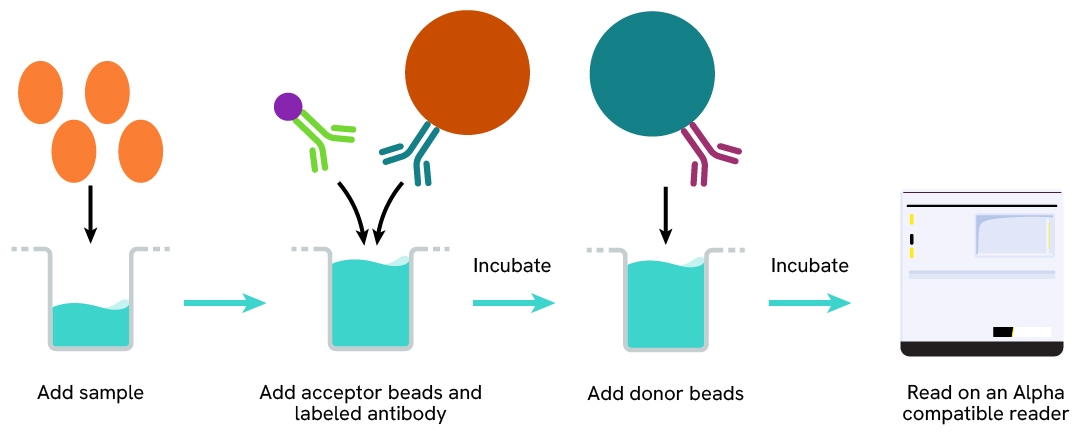
Specifications
| Application |
Protein Quantification
|
|---|---|
| Automation Compatible |
Yes
|
| Brand |
AlphaLISA
|
| Detection Modality |
Alpha
|
| Dynamic Range |
0.66 - 10,000 pg/mL
|
| Limit of Detection |
0.66 pg/mL
|
| Limit of Quantification |
2.60 pg/mL
|
| Product Group |
Kit
|
| Sample Volume |
5 µL
|
| Shipping Conditions |
Shipped in Blue Ice
|
| Target |
IL-8
|
| Target Class |
Cytokines
|
| Target Species |
Human
|
| Technology |
Alpha
|
| Therapeutic Area |
Autoimmunity
Immuno-oncology
Neuroscience
Oncology
|
| Unit Size |
500 assay points
|
Video gallery
Resources
Are you looking for resources, click on the resource type to explore further.
Our R&D scientists were determined to enable your research by developing new and improved versions of our AlphaLISA cytokine...
Emerging pathways to neuroinflammation and neurodegeneration
Neurodegenerative diseases, such as amyotrophic lateral sclerosis...
Cytokines play an essential role in inflammatory processes, leading to their involvement in viral and bacterial infections, as...
Cytokines play a vital role in both innate and adaptive immunity and are known for their ability to exert diverse functions on...
Advance your autoimmune disease research and benefit from Revvity broad offering of reagent technologies
SDS, COAs, manuals and more
Are you looking for technical documents related to the product? We have categorized them in dedicated sections below. Explore now or request your COA/TDS, SDS, or IFU/manual.
- LanguageEnglishCountryUnited States
- LanguageEnglishCountryEU
- Lot Number3323537Lot DateJuly 31, 2024
- Lot Number3262690Lot DateJune 22, 2024
- Resource TypeManualLanguageEnglishCountry-


Loading...
How can we help you?
We are here to answer your questions.































